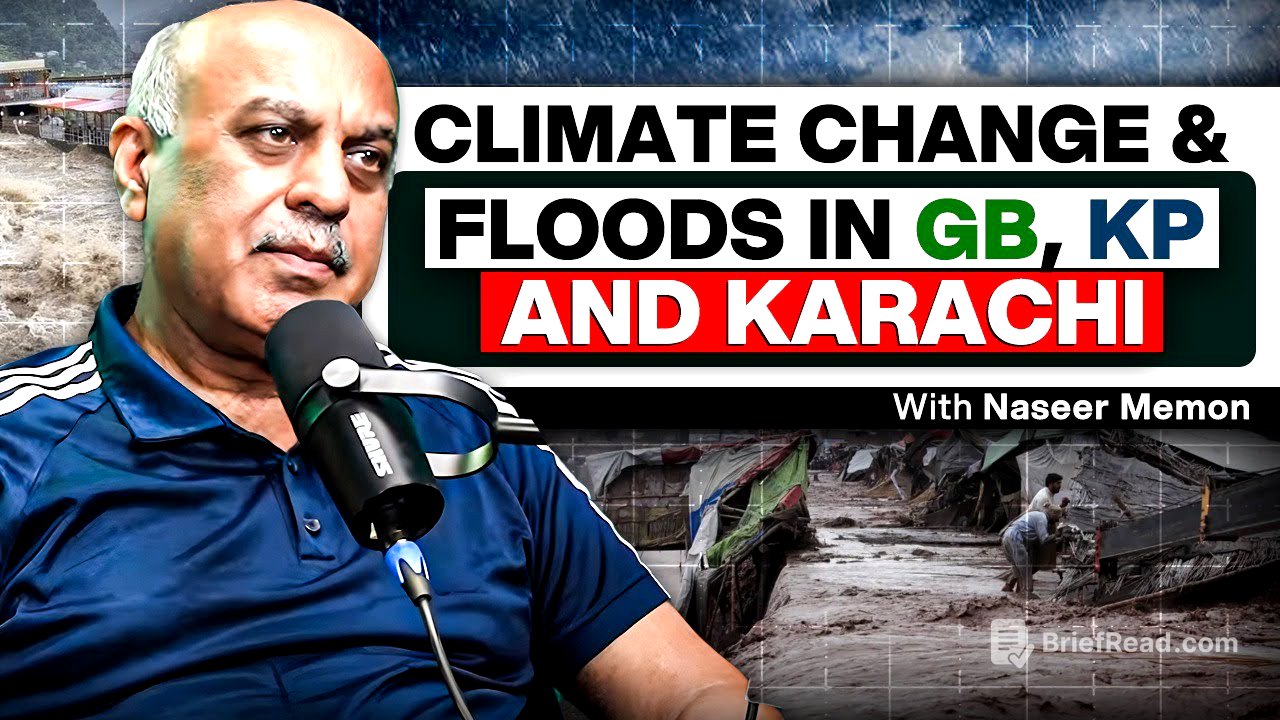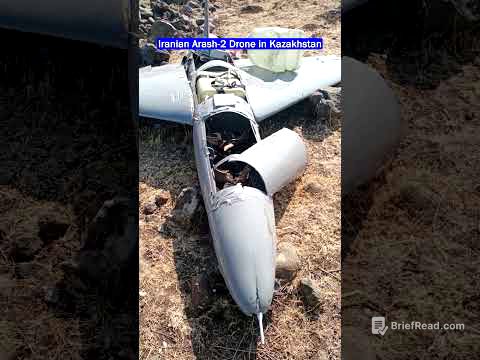TLDR;
This YouTube video features a discussion with a development professional and climate change consultant about the recent floods and disasters in Pakistan. The conversation covers the human impact on these disasters, including encroachments, deforestation, and unauthorized construction. It also addresses the need for population control, reevaluating development models, and addressing elite capture and governance issues to mitigate future disasters. The expert emphasizes the importance of understanding and respecting natural water pathways, enforcing regulations, and focusing on human development alongside economic progress.
- Climate change is intensified by human actions like deforestation and illegal construction.
- Population control is crucial for Pakistan's sustainable development.
- Current development models prioritize economic growth over environmental sustainability and human well-being.
- Elite capture and poor governance exacerbate the impact of disasters.
- Addressing these issues requires a multi-faceted approach, including enforcing regulations, respecting natural water pathways, and prioritizing human development.
Introduction [0:00]
The host introduces a development professional and climate change consultant to discuss the recent floods and disasters in Pakistan. The expert notes that while disasters are common, their visibility has increased due to media coverage. He points out that many of the issues causing these disasters, such as water pathways being blocked by construction, have been present for years but are now causing significant damage due to increased population and infrastructure.
Climate Change, Development and Floods [1:30]
The expert explains that the intensity and frequency of climate change impacts are increasing, making accurate forecasting difficult. He cites examples of recent disasters, such as the cloud burst in Islamabad and the flooding in DHA Islamabad, highlighting how unauthorized construction and disregard for natural water pathways exacerbate these events. He emphasizes that while climate change is a factor, human actions like encroachments, deforestation, and converting unpaved land to concrete are significantly worsening the situation.
Katchi Abadis, housing crisis and over-population [17:47]
The discussion shifts to the issue of overpopulation and its impact on housing and resources. The expert argues that Pakistan's population growth is a fundamental problem that needs to be addressed through sterilization and other population control measures. He points out that the increasing population puts a strain on resources, leading to the development of slums and unauthorized settlements in vulnerable areas.
What is development? Different models of development [23:48]
The expert questions Pakistan's development model, which often prioritizes infrastructure and economic growth over environmental sustainability and human well-being. He suggests redefining progress to focus on harmonizing development with nature and improving the quality of life for all citizens. He mentions the Environmental Impact Assessment (EIA) process as a tool for ensuring that development projects are environmentally sound and sustainable, but notes that it is often not properly implemented.
Elite Capture and Governance [36:00]
The conversation touches on the issue of elite capture and its role in exacerbating disasters. The expert argues that those who profit from land sales, deforestation, and unauthorized construction often do not bear the consequences of their actions, as they are insulated from the impacts of disasters. He suggests that there is a disconnect between the elite and the rest of the population, with the elite viewing Pakistan as a stopover rather than a place to invest in long-term sustainability.
Roadmap to fixing Pakistan and Disaster Management [41:00]
The expert outlines a roadmap for fixing Pakistan's disaster management system, emphasizing the need for population control, enforcing regulations, and respecting natural water pathways. He suggests using 50-year-old maps and satellite imagery to identify blocked drains and prioritize their restoration. He also stresses the importance of good governance and accountability in implementing these measures.
Dam and Water Scarcity [48:37]
The discussion addresses the issue of dam construction and water scarcity in Pakistan. The expert argues that dams are not a panacea for all water-related problems and that they can have negative impacts on ecosystems, particularly in the Indus Delta. He emphasizes the need to consider the ecological requirements of the delta and ensure that sufficient water flows downstream to maintain its health.
Audience Questions [53:52]
In the final segment, the expert answers questions from the audience on various topics, including the impact of climate change on weather patterns, measures to reduce devastation during monsoon, and the reasons behind Sindh's opposition to the Kalabagh Dam. He also discusses the potential for mass migration due to climate change and the need to increase green cover in cities to mitigate heat waves.









